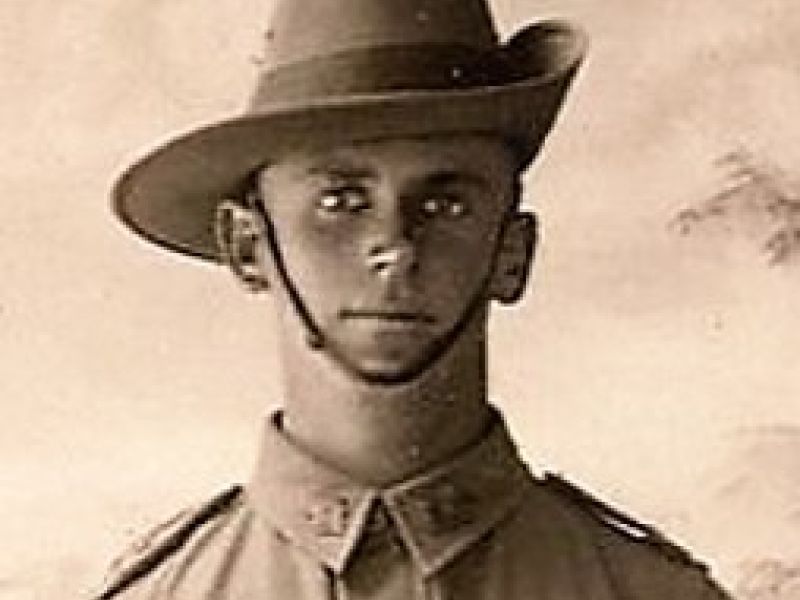Private William Polden, 16th Battalion, AIF
William Polden was born on 18 May 1890 to George and Emma Polden of Mount Pleasant, South Australia. He attended Mount Pleasant Public School, and went on to work as a clerk. He was well known in the district as a successful athlete, and was a prominent member of the Mount Pleasant Football Club, winning the gold medal for the best all-round player in 1914.
William Polden enlisted in the Australian Imperial Force shortly after the outbreak of war. He was posted to the newly formed 16th Battalion, one quarter of whom, like Polden, came from South Australia, while the remaining three quarters came from Western Australia. The two parts of the battalion were united in Victoria, where the unit continued training as a whole battalion.
The 16th Battalion left Australia for active service overseas on Boxing Day 1914. After a brief stop in Albany, Western Australia, they proceeded to Egypt, where the men continued training in the desert for some weeks.
On the morning of 25 April 1915, the 16th Battalion sailed from the island of Lemnos in “splendid weather”, with the faint sounds of firing from the landing at Anzac Cove audible on the breeze. The battalion itself began landing in the evening, and disembarkation under ceaseless fire continued the next day.
The situation on Gallipoli remained uncertain for the following days. The 16th joined the other Australian battalions on Gallipoli in establishing a strong forward line on the heights above Anzac Cove. The work was hectic, and a considerable number of the battalions mixed in together, particularly those that had taken part in the initial landing.
By 1 May, the situation was beginning to stabilise, and for the first time men of the 16th Battalion were allowed time to bathe in the sea in small groups. At some point on this day, however, it appears that Private William Polden was wounded.
Polden’s family were informed by telegram that he was wounded but they received no further information from military authorities, nor from their son. They continued writing to him weekly but heard nothing.
Private Polden’s fate remains somewhat obscure. At some point his file was marked “wounded and missing”, and no evidence of admission to any hospital was found.
The following year a court of inquiry in Serapeum determined that Private Polden had in fact been killed in action on 1 May 1915, but his manner of death is unknown.
Private Polden’s body was never located, and today he is commemorated on the Lone Pine Memorial on Gallipoli.
He was 25 years old.
Meleah Hampton, Historian, Military History Section
- Australian War Memorial https://www.awm.gov.au/collection/AWM2020.1.1.327

 Australian War Memorial
Australian War Memorial